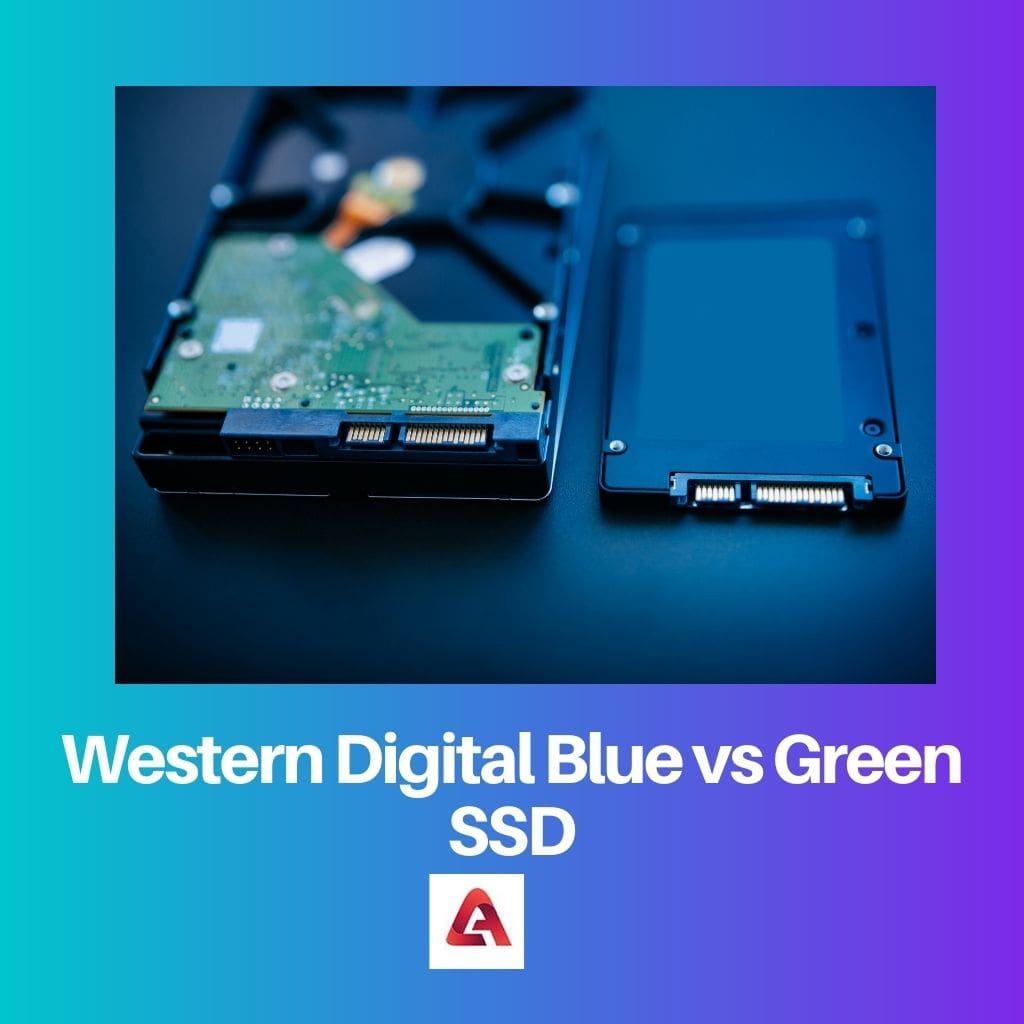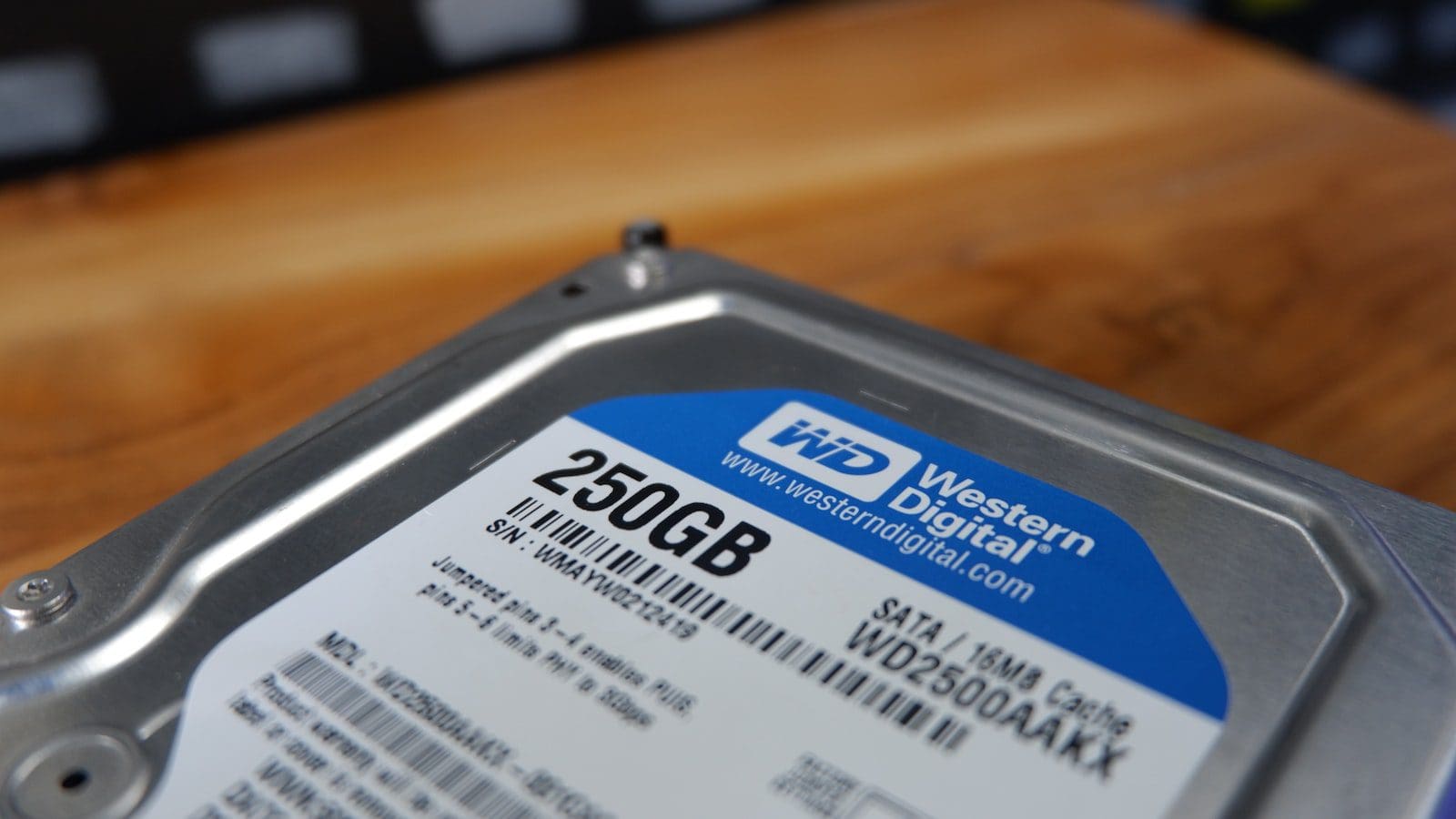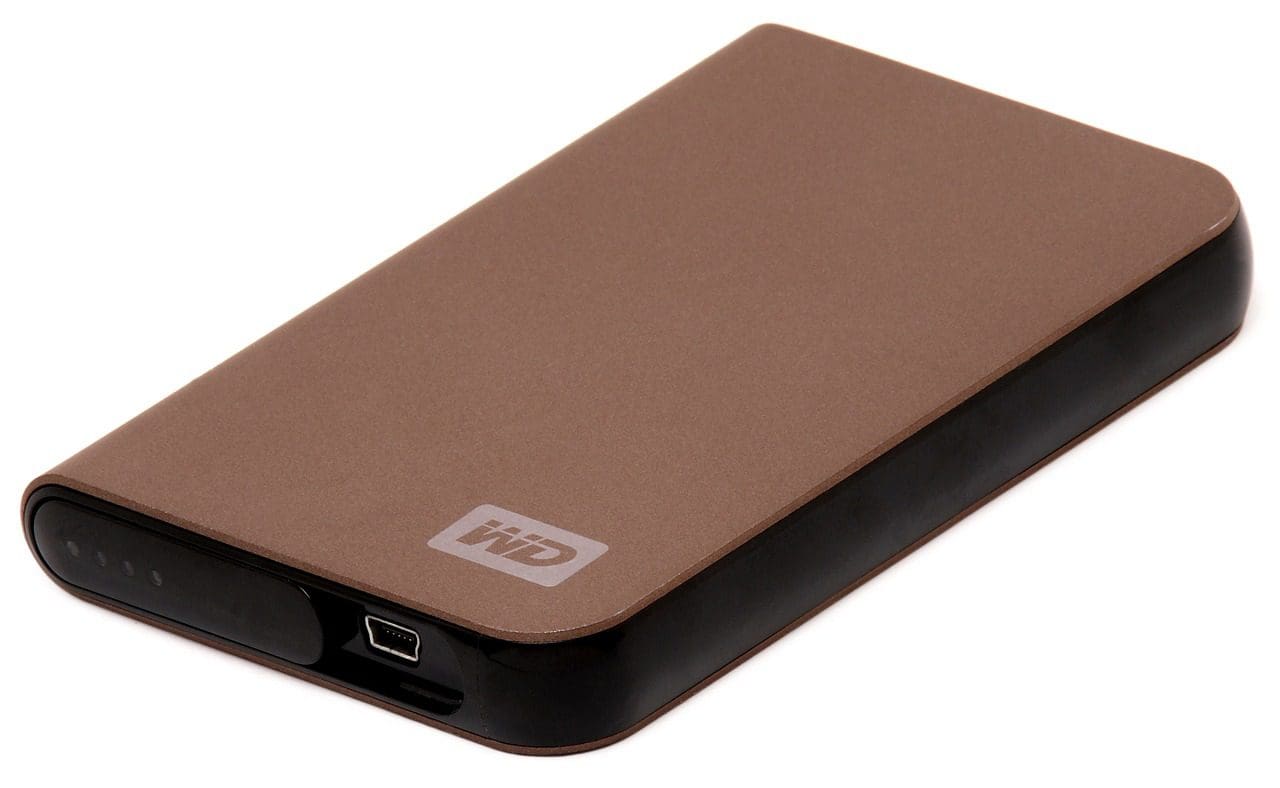SSD means solid-state drive or storage, which is secondary storage that uses integrated circuits. It stores all the data of the devices permanently and consistently using flash memory.
SSDs work very much faster, are silent, resistant to shocks and have low latency. It stores data in semiconductor cells. It was launched in 1991 by SanDisk.
Now it has a capacity of 250 GB to 1 TB. Western Digital Company also manufactures two types of SSDs, Blue and Green.
Key Takeaways
- WD Blue SSDs offer better overall performance, ideal for heavy multitasking and demanding applications.
- WD Green SSDs provide lower energy consumption and are suitable for lighter tasks and everyday use.
- WD Blue SSDs have higher storage capacities and longer warranty periods than WD Green SSDs.
Western Digital Blue vs Green SSD
The difference between Western Digital Blue and Green SSD is that both have different use. For basic computer usage, Green SSD is used, while for extensive PC usage, blue SSD is used. Blue SSD is more reliable, i.e. almost 75% more than Green SSD. Blue SSD has a higher performance rate and low failure rating than Green SSD.

Western Digital Blue SSD has a capacity of 2TB storage. It is highly reliable as it uses 3D NAND technology. In comparison to other SSDs and their previous versions Blue SSD draw very little power, almost 25%.
Because of lower power consumption, it is very easier to work on desktops and laptops for a longer period of time. Its sequential writing speed is 530MB/s, and its sequential reading speed is 560MB/s.
Green SSD is very good for everyday computing as it comes with improved performance, which helps devices to boost. Because of this, we can easily play a game, perform tasks and start the computers in the blink of a second.
They are very lightweight and are shock resistant. It also keeps your data intact in case of any accidents. It consumes very low power and can be upgraded easily on the PC.
Comparison Table
| Parameters of Comparison | Western Digital Blue | Green SSD |
|---|---|---|
| Capacity | 250GB, 500GB, 1TB, 2TB | 120GB, 240GB, 480GB |
| Sequential read speed | 560MB/s | 545MB/s |
| Interface | 3D NAND | SATA III |
| Reliability (in hours) | Up to 1.75 Million hours | Up to 1.0 Million hours |
| Usage | Extensive | Basic |
What is Western Digital Blue SSD?
Western Digital Blue SSD is used for advanced computers as it is used for high gaming, creative playback and HD media playback.
It uses 3D NAND SATA technology, which improves its speed, and it is very quick to perform tasks and applications. Its booting system also becomes fast, and it becomes very rapid in its performance speed.
It has a sequential write-up speed of 530 MB/s and a read-up speed of 560 MB/s.
Blue SSD has various error correction technologies. It makes it extremely reliable as it can guard data for many years even if there is a failure. There is no moving part in it that saves data from any drops or bumps.
It has a reliability of up to 1.75 million hours. It has very broad compatibility as it goes through several tests and procedures which meet high standards. It also has a 5 years limited warranty so that you can store data for a longer period of time.
Blue SSD comes with a better version which has improved endurance. It draws less than 25% power which makes computers save energy, and it can be used for a longer duration before recharging them.
It has an interface of SATA 6Gb/s. It comes in various capacities, like 250 GB to 2 TB. It has SMART attributes, operating temperatures and can drive monitors very efficiently.

What is Green SSD?
Green SSD capacity for storing data starts from 120 GB and goes to 480 GB. It comes in three capacities 120, 240 and 480 GB. It has an interface with SATA III.
Green SSD has a form factor of 2.5 inches.its dimensions include 100.5mm x 69.85mm x 7mm. It comes with a limited warranty of 3 years, unlike Blue SSD. It can monitor the health of the drive, which comes in a free downloadable WD SSD dashboard.
Green SSD is very much suited for everyday computing because it has very basic computer usage. It is very much compatible with all the other devices. It can easily be downloaded and upgraded on laptops and computers.
With its improved performance, it boosts the device in less than 15 seconds. All the applications like Chrome and MS Office open up very quickly in less than 3 seconds.
While transferring files and data from a hard drive, pen drive, or phone takes very little time, and there is a reduction in time. It is very eco-friendly. It comes on a budget, is very lightweight and thin.
It is intact with no moving parts. It uses only 3 to 4 watts of PSU. Installation is very easy. Its read-up speed is 545 MB/s which is better than other SSDs. It has a dual drive combination that transfers data from HDD to SSD.

Main Differences Between Western Digital Blue and Green SSD
- Western Digital Blue comes in a capacity of 250GB, 500GB, 1TB, and 2TB. Green SSD comes in a capacity of 120 GB, 240 GB, and 480 GB.
- Western Digital Blue has a sequential read-up to a speed of 560MB/s. Green SSD has a sequential read-up to a speed of 545MB/s.
- Western Digital Blue has an interface of 3D NAND SATA technology. Green SSD has an interface of SATA III.
- Western Digital Blue has a reliability of up to 1.75 million hours. Green SSD has a reliability of up to 1.0 million hours.
- Western Digital Blue has extensive usage. Green SSD has a very basic usage.
- https://www.researchgate.net/profile/Dinesh-Kumar-166/publication/336086067_WESTERN_DIGITAL_HARD_DRIVE_COLOR_DIFFERENCES/links/5d8dd789a6fdcc25549ef09f/WESTERN-DIGITAL-HARD-DRIVE-COLOR-DIFFERENCES.pdf
- https://dl.acm.org/doi/abs/10.1145/2093139.2093140
The dimensions, form factor, and warranty details provided for Western Digital Green SSD are essential considerations when evaluating storage options.
The sequential read and write speeds of Western Digital Blue and Green SSDs are impressive. It’s evident that technological advancements are leading to significant performance improvements.
The article presents a clear distinction between Western Digital Blue and Green SSDs based on usage and reliability. This information will be valuable for users looking to make an informed decision.
SSDs sound like a promising advancement in data storage technology. It’s great to have detailed comparisons between Western Digital Blue and Green SSDs.
The article provides a broad understanding of Western Digital Blue and Green SSDs, emphasizing their respective strengths and use cases. This will aid in making an informed choice.
The energy efficiency and compatibility of Western Digital Green SSD make it a compelling option for everyday computing. These aspects cater to the practical needs of users.
SSDs seem to be the future of how we store and transfer data. It’s fascinating to see how far technology has come in terms of data storage.
It’s interesting to learn about the advanced features and reliability of Western Digital Blue SSD. The details provided paint a comprehensive picture of its benefits.
The technical specifications provided for Western Digital Blue and Green SSDs are very informative. It’s crucial to understand these details when selecting the right storage solution.
The comparison table helps in understanding the differences between Western Digital Blue and Green SSDs at a glance. It’s a helpful summary of crucial details.